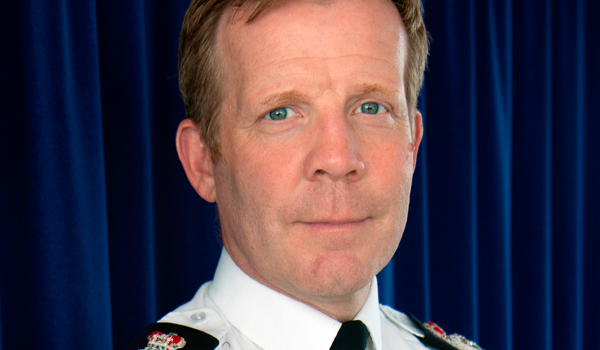Chief constable’s commitment: ‘A place that is not only safe, but feels safe’
A relentless pursuit of criminals, exceptional local policing and putting victims first – this is how policing across Hampshire and the Isle of Wight will be delivered under changes announced by Chief Constable Scott Chilton.
Since he took up the role at the end of February, Mr Chilton said he has been “working at pace” to fundamentally change the way the force is structured to bring policing much closer to the communities it serves and deliver the requirements outlined in the police and crime commissioner’s (PCC) Police and Crime Plan.
The public now has a district commander overseeing all aspects of policing – from the officers responding to 999 calls, the investigators dealing with crimes that cause harm in our communities and bringing criminals to justice, and more visible neighbourhood officers to deal with issues that are causing concern.
The chief constable has also announced the introduction of Neighbourhood Enforcement Teams, which will be able to act fast on the information and intelligence coming in from communities to target hotspots and catch those who are committing crime.
These teams have been created from the extra 50 officers that the PCC announced on top of the 600 already recruited as part of the Government’s uplift programme.
Mr Chilton also scrapped the requirement for officers to study for a degree to become officers and announced a new way to join policing – Hampshire Policing PLUS, the first of its kind in the country.
It went live last week and means that those who want to join policing can spend their time learning the skills required to be “excellent officers without the distraction of unnecessary academic study”, said Mr Chilton, which takes up “hundreds of thousands of hours of their time” that could be better used out on the streets fighting crime, arresting people and making communities safer.
Mr Chilton said: “When I became chief, I was clear that I wanted my officers, staff and volunteers to not only create communities that were safe, but that felt safe.
“To do this I have set three really clear priorities. Relentlessly pursue those criminals that cause harm to our communities, provide exceptional local policing, and put victims at the heart of everything we do.
“Our communities want and expect to see police officers and staff dealing with the issues that they care about, responding when they need us, dealing with those who cause harm in our communities and making our two counties a hostile environment for criminals.
“I have spent a lot of time since being back in force talking about how all officers will investigate crime. I want officers and staff to be looking for every opportunity to target criminals, taking a robust approach to those who commit crime.
“There is too much time spent on unnecessary bureaucracy, or filling the gaps of other agencies, who are often much better placed and trained to deal with the issues we are being called to. This means we are diverted away from doing the job that only policing can do, and what my officers and staff joined up to do.
“This is what I expect from policing, and what the public expects, and why I have changed the way the force is set up to deliver on this.
“I am also passionate about being a force where anyone who wants to join policing should have the chance to do so. There are so many people who would be great police officers but have been put off from joining because of the need for a degree.
“There are many people, for example those who have served in the military, who want to join policing but whose skills and life experience are not recognised under the degree scheme. Not only does that make them feel completely devalued, it also means we are missing out on some really good people who could make really good police officers.
“I also heard loud and clear from many of the student officers that time spent on academic study could be better spent with more experienced officers, out of the classroom, learning on the job and tackling crime.
“That’s why I got rid of this requirement and created Hampshire Policing PLUS – the first scheme of its kind in the country.”
PCC Donna Jones said for too long policing has been “lost in bureaucracy and issues that are not core police business”.
“Responding to neighbourhood crimes is as important as responding to serious crimes, in order to prevent crime levels escalating,” she said.
“The chief’s overhaul of the operating model of the police service will mean police are more visible in communities, driving down crime, supporting victims and upholding the law. This is what we will have again in Hampshire and on the Isle of Wight.”
Ms Jones added: “These changes are welcome and set out how I expect the constabulary to deliver a first class police service which the residents of Hampshire and Isle of Wight have told me they want from their police force.
“The chief’s straight forward vision is now becoming a reality. I know these changes are going to make a difference to communities through visible, proactive policing with local officers you know and trust, responding to incidents quickly and carrying out investigations that deliver justice.
“An example of our common sense approach is this force being being the first in the country to scrap the compulsory police degree and introduce an apprenticeship style training programme called Hampshire Policing PLUS.
“Together, the chief and I are absolutely determined to ensure a first class police service for the public. The brave men and women who work for the force are dedicated hard-working individuals who want to protect people and solve crime. I have every confidence in the chief’s plans to make sure they are able to do that.”


